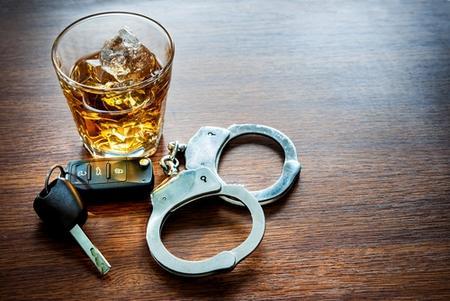When Is an Alcohol Treatment Program Required After an Illinois DUI?
 Most people understand the dangers associated with impaired driving, yet many car accidents with injuries are caused by driving under the influence (DUI) of drugs or alcohol. Statistics from the National Highway Traffic Safety Administration (NHTSA) show that in 2018, more than 10,000 people died in drunk-driving crashes in the United States. The state of Illinois takes drinking and driving offenses seriously.
Most people understand the dangers associated with impaired driving, yet many car accidents with injuries are caused by driving under the influence (DUI) of drugs or alcohol. Statistics from the National Highway Traffic Safety Administration (NHTSA) show that in 2018, more than 10,000 people died in drunk-driving crashes in the United States. The state of Illinois takes drinking and driving offenses seriously.
Any driver with a blood alcohol content (BAC) of .08 percent or higher may be arrested for DUI. Penalties can range from license suspension to fines to prison time. In certain cases, an offender may be ordered to attend an alcohol treatment program as part of his or her punishment as a form of rehabilitation.
Evaluation and Hearing
In Illinois, any driver arrested for DUI who fails, refuses, or fails to complete chemical testing will automatically have his or her license suspended. If a person’s driver’s license is revoked due to a DUI conviction, he or she is required to attend a hearing with the Secretary of State before driving privileges are reinstated. Prior to the hearing, the offender must undergo a drug and alcohol evaluation. The purpose of the evaluation is to determine if the defendant’s alcohol and/or drug use poses a risk to public safety. Below are the main factors that are taken into account:
- Driving record
- Blood alcohol content (BAC) test results
- Objective test score and resulting category
- Evaluator interview
Risk Categories
Once the evaluation is finished, a classification and a recommendation will be sent in the form of an Alcohol and Drug Uniform Report to the Court or the Secretary of State. The following are the possible classifications assigned to an offender:
- Minimal Risk: Completion of Driver Risk Education (DRE), a 10-hour DUI prevention course
- Moderate Risk: Completion of 10 hours of DRE plus 12 hours of early intervention treatment
- Significant Risk: Completion of 10 hours of DRE and 20 hours of alcohol counseling
- High Risk: Completion of a 28-day inpatient treatment program or a 75-hour outpatient treatment program
For those individuals who are considered high risk, they may also be required to attend Alcoholics Anonymous (AA), or a similar support program, and to stop drinking for at least one year before their hearing. A knowledgeable attorney can assist you during this process to reinstate your driving privileges.
Contact a Will County Criminal Defense Lawyer
If you or someone you know is facing DUI charges in Illinois, it does not necessarily mean you will lose your driving privileges or be sentenced to jail time. You may have several legal options depending on the circumstances of your case. Speaking with the experienced law firm of McNamara Phelan McSteen, LLC can significantly enhance your chances of a favorable outcome. Our diligent Joliet DUI defense attorneys will examine the details of your traffic stop and arrest to determine if your rights were violated in any way. Call our office today at 815-727-0100 to schedule your free consultation.
Sources:
https://www.nhtsa.gov/risky-driving/drunk-driving
http://www.ilga.gov/legislation/ilcs/fulltext.asp?DocName=062500050K11-501
http://www.dhs.state.il.us/page.aspx?item=44177
 815-727-0100
815-727-0100













